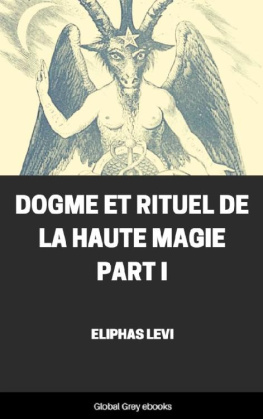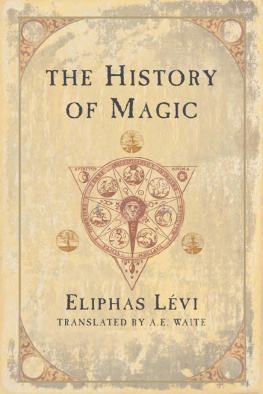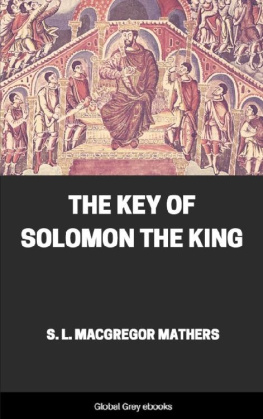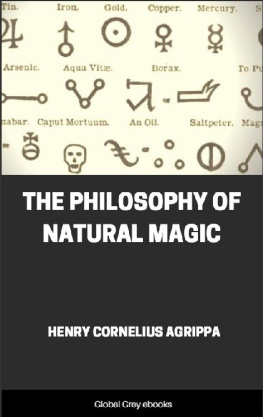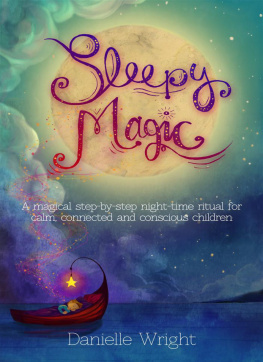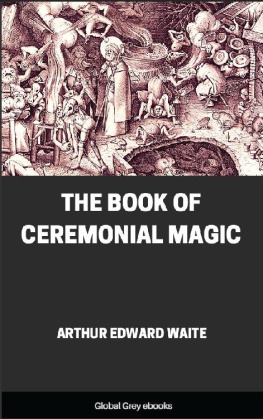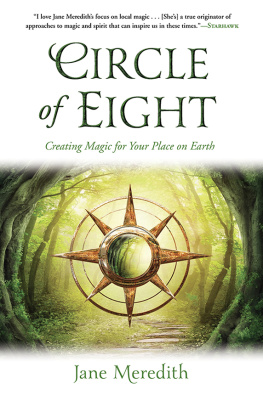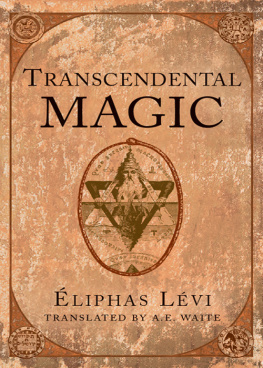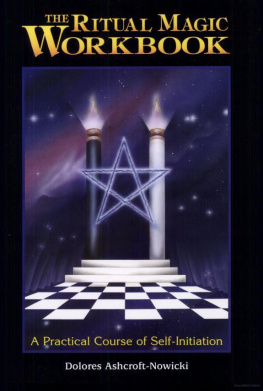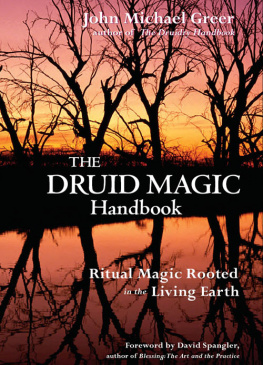Eliphas Levi - Dogme et Rituel de la Haute Magie Part I
Here you can read online Eliphas Levi - Dogme et Rituel de la Haute Magie Part I full text of the book (entire story) in english for free. Download pdf and epub, get meaning, cover and reviews about this ebook. year: 2019, publisher: Global Grey ebooks, genre: Religion. Description of the work, (preface) as well as reviews are available. Best literature library LitArk.com created for fans of good reading and offers a wide selection of genres:
Romance novel
Science fiction
Adventure
Detective
Science
History
Home and family
Prose
Art
Politics
Computer
Non-fiction
Religion
Business
Children
Humor
Choose a favorite category and find really read worthwhile books. Enjoy immersion in the world of imagination, feel the emotions of the characters or learn something new for yourself, make an fascinating discovery.
- Book:Dogme et Rituel de la Haute Magie Part I
- Author:
- Publisher:Global Grey ebooks
- Genre:
- Year:2019
- Rating:3 / 5
- Favourites:Add to favourites
- Your mark:
- 60
- 1
- 2
- 3
- 4
- 5
Dogme et Rituel de la Haute Magie Part I: summary, description and annotation
We offer to read an annotation, description, summary or preface (depends on what the author of the book "Dogme et Rituel de la Haute Magie Part I" wrote himself). If you haven't found the necessary information about the book — write in the comments, we will try to find it.
Dogme et Rituel de la Haute Magie Part I — read online for free the complete book (whole text) full work
Below is the text of the book, divided by pages. System saving the place of the last page read, allows you to conveniently read the book "Dogme et Rituel de la Haute Magie Part I" online for free, without having to search again every time where you left off. Put a bookmark, and you can go to the page where you finished reading at any time.
Font size:
Interval:
Bookmark:
DOGMA ET RITUEL
DE LA
HAUTE MAGIE
PART I
THE DOCTRINE OF TRANSCENDENTAL MAGIC
BY
ELIPHAS LEVI
TRANSLATED BY A. E. WAITE
1896
Dogme et Rituel de la Haute Magie Part I By Eliphas Levi.
This edition was created and published by Global Grey
GlobalGrey 2019

globalgreyebooks.com
Behind the veil of all the hieratic and mystical allegories of ancient doctrines, behind the darkness and strange ordeals of all initiations, under the seal of all sacred writings, in the ruins of Nineveh or Thebes, on the crumbling stones of old temples and on the blackened visage of the Assyrian or Egyptian sphinx, in the monstrous or marvellous paintings which interpret to the faithful of India the inspired pages of the Vedas, in the cryptic emblems of our old books on alchemy, in the ceremonies practised at reception by all secret societies, there are found indications of a doctrine which is everywhere the same and everywhere carefully concealed. Occult philosophy seems to have been the nurse or god-mother of all intellectual forces, the key of all divine obscurities and the absolute queen of society in those ages - when it was reserved exclusively for the education of priests and of kings. It reigned in Persia with the Magi, who perished in the end, as perish all masters of the world, because they abused their power; it endowed India with the most wonderful traditions and with an incredible wealth of poesy, grace and terror in its emblems; it civilized Greece to the music of the lyre of Orpheus; it concealed the principles of all sciences, all progress of the human mind, in the daring calculations of Pythagoras; fable abounded in its miracles, and history, attempting to estimate this unknown power, became confused with fable; it undermined or consolidated empires by its oracles, caused tyrants to tremble on their thrones and governed all minds, either by curiosity or by fear. For this science, said the crowd, there is nothing impossible, it commands the elements, knows the language of the stars and directs the planetary courses; when it speaks, the moon falls blood-red from heaven; the dead rise in their graves and mutter ominous words, as the night wind blows through their skulls. Mistress of love or of hate, occult science can dispense paradise or hell at its pleasure to human hearts; it disposes of all forms and confers beauty or ugliness; with the wand of Circe it changes men into brutes and animals alternately into men; it disposes even of life and death, can confer wealth on its adepts by the transmutation of metals and immortality by its quintessence or elixir, compounded of gold and light.
Such was Magic from Zoroaster to Manes, from Orpheus to Apollonius of Tyana, when positive Christianity, victorious at length over the brilliant dreams and titanic aspirations of the Alexandrian school, dared to launch its anathemas publicly against this philosophy, and thus forced it to become more occult and mysterious than ever. Moreover, strange and alarming rumours began to circulate concerning initiates or adepts; they were surrounded every where by an ominous influence, and they destroyed or distracted those who allowed themselves to be beguiled by their honeyed eloquence or by the sorcery of their learning. The women whom they loved became Stryges and their children vanished at nocturnal meetings, while men whispered shudderingly and in secret of bloodstained orgies and abominable banquets. Bones had been found in the crypts of ancient temples, shrieks had been heard in the night, harvests withered and herds sickened when the magician passed by. Diseases which defied medical skill appeared at times in the world, and always, it was said, beneath the envenomed glance of the adepts. At length a universal cry of execration went up against Magic, the mere name became a crime and the common hatred was formulated in this sentence: Magicians to the flames! - as it was shouted some centuries earlier: To the lions with the Christians! Now the multitude never conspires except against real powers; it does not know what is true, but it has the instinct of what is strong. It remained for the eighteenth century to deride both Christians and Magic, while infatuated with the disquisitions of Rousseau and the illusions of Cagliostro. Science, notwithstanding, is at the basis of Magic, as at the root of Christianity there is love, and in the Gospel symbols we find the Word Incarnate adored in His cradle by Three Magi, led thither by a star - the triad and the sign of the microcosm - and receiving their gifts of gold, frankincense and myrrh, a second mysterious triplicity, under which emblem the highest secrets of the Kabalah are allegorically contained. Christianity owes therefore no hatred to Magic, but human ignorance has ever stood in fear of the unknown. The science was driven into hiding to escape the impassioned assaults of blind desire: it clothed itself with new hieroglyphics, falsified its intentions, denied its hopes. Then it was that the jargon of alchemy was created, an impenetrable illusion for the vulgar in their greed of gold, a living language only for the true disciple of Hermes.
Extraordinary fact! Among the sacred records of the Christians there are two texts which the infallible Church makes no claim to understand and has never attempted to expound: these are the Prophecy of Ezekiel and the Apocalypse, two Kabalistic Keys reserved assuredly in heaven for the commentaries of Magian Kings, books sealed as with seven seals for faithful believers, yet perfectly plain to an initiated infidel of the occult sciences. There is also another work, but, although it is popular in a sense and may be found everywhere, this is of all most occult and unknown, because it is the key of the rest. It is in public evidence without being known to the public; no one suspects its existence and no one dreams of seeking it where it actually is. This book, which may be older than that of Enoch, actually has never been translated, but is still preserved unmutilated in primeval characters, on detached leaves, like the tablets of the ancients. The fact has eluded notice, though a distinguished scholar has revealed, not indeed its secret, but its antiquity and singular preservation. Another scholar, but of a mind more fantastic than judicious, passed years in the study of this masterpiece, and has merely suspected its plenary importance. It is, in truth, a monumental and extraordinary work, strong and simple as the architecture of the pyramids, and consequently enduring like those - a book which is the summary of all sciences, which can resolve all problems by its infinite combinations, which speaks by evoking thought, is the inspirer and moderator of all possible conceptions, and the masterpiece perhaps of the human mind. It is to be counted unquestionably among the very great gifts bequeathed to us by antiquity; it is a universal key, the name of which has been explained and comprehended only by the learned William Postel; it is a unique test, whereof the initial characters alone plunged into ecstasy the devout spirit of Saint-Martin, and might have restored reason to the sublime and unfortunate Swedenborg. We shall recur to this book later on, for its mathematical and precise explanation will be the complement and crown of our conscientious undertaking.
The original alliance between Christianity and the Science of the Magi, once demonstrated fully, will be a discovery of no second-rate importance, and we do not doubt that the serious study of Magic and the Kabalah will lead earnest minds to a reconciliation of science and dogma, of reason and faith, heretofore regarded as impossible. We have said that the Church, whose special office is the custody of the Keys, does not pretend to possess those of the Apocalypse or of Ezekiel. In the opinion of Christians the scientific and magical Clavicles of Solomon are lost, which notwithstanding, it is certain that, in the domain of intelligence, ruled by the Word nothing that has been written can perish. Whatsoever men cease to understand exists for them no longer, at least in the order of the Word, and it passes then into the domain of enigma and mystery. Furthermore, the antipathy and even open war of the Official Church against all that belongs to the realm of Magic, which is a kind of personal and emancipated priesthood, is allied with necessary and even with inherent causes in the social and hierarchic constitution of Christian sacerdotalism. The Church ignores Magic - for she must either ignore it or perish, as we shall prove later on; yet she does not recognize the less that her mysterious Founder was saluted in His cradle by Three Magi - that is to say, by the hieratic ambassadors of the three parts of the known world and the three analogical worlds of occult philosophy. In the School of Alexandria, Magic and Christianity almost joined hands under the auspices of Ammonius Saccas and of Plato; the doctrine of Hermes is found almost in its entirety in the writings attributed to Dionysius the Areopagite; Synesius outlined the plan of a treatise on dreams, which was annotated subsequently by Cardan, and composed hymns that might have served for the liturgy of the Church of Swedenborg, could a church of the illuminated possess a liturgy. With this period of fiery abstractions and impassioned warfare of words there must be connected also the philosophic reign of Julian, called the Apostate because in his youth he made unwilling profession of Christianity. Everyone is aware that Julian had the misfortune to be a hero out of season of Plutarch, and that he was, if one may say so, the Don Quixote of roman Chivalry; but what most people do not know is that he was one of the illuminated and an initiate of the first order: that he believed in the unity of God and in the universal doctrine of the Trinity; that, in a word, he regretted nothing of the old world but its magnificent symbols and its too gracious images. Julian was not a pagan; he was a Gnostic allured by the allegories of Greek polytheism, who had the misfortune to find the name of Jesus Christ less sonorous than that of Orpheus. The Emperor paid in his person for the academical tastes of the philosopher and rhetorician, and after affording himself the spectacle and satisfaction of expiring like Epaminondas with the periods of Cato, he had in public opinion, by this time fully Christianized, but anathemas for his funeral oration and a scornful epithet for his ultimate memorial.
Next pageFont size:
Interval:
Bookmark:
Similar books «Dogme et Rituel de la Haute Magie Part I»
Look at similar books to Dogme et Rituel de la Haute Magie Part I. We have selected literature similar in name and meaning in the hope of providing readers with more options to find new, interesting, not yet read works.
Discussion, reviews of the book Dogme et Rituel de la Haute Magie Part I and just readers' own opinions. Leave your comments, write what you think about the work, its meaning or the main characters. Specify what exactly you liked and what you didn't like, and why you think so.

